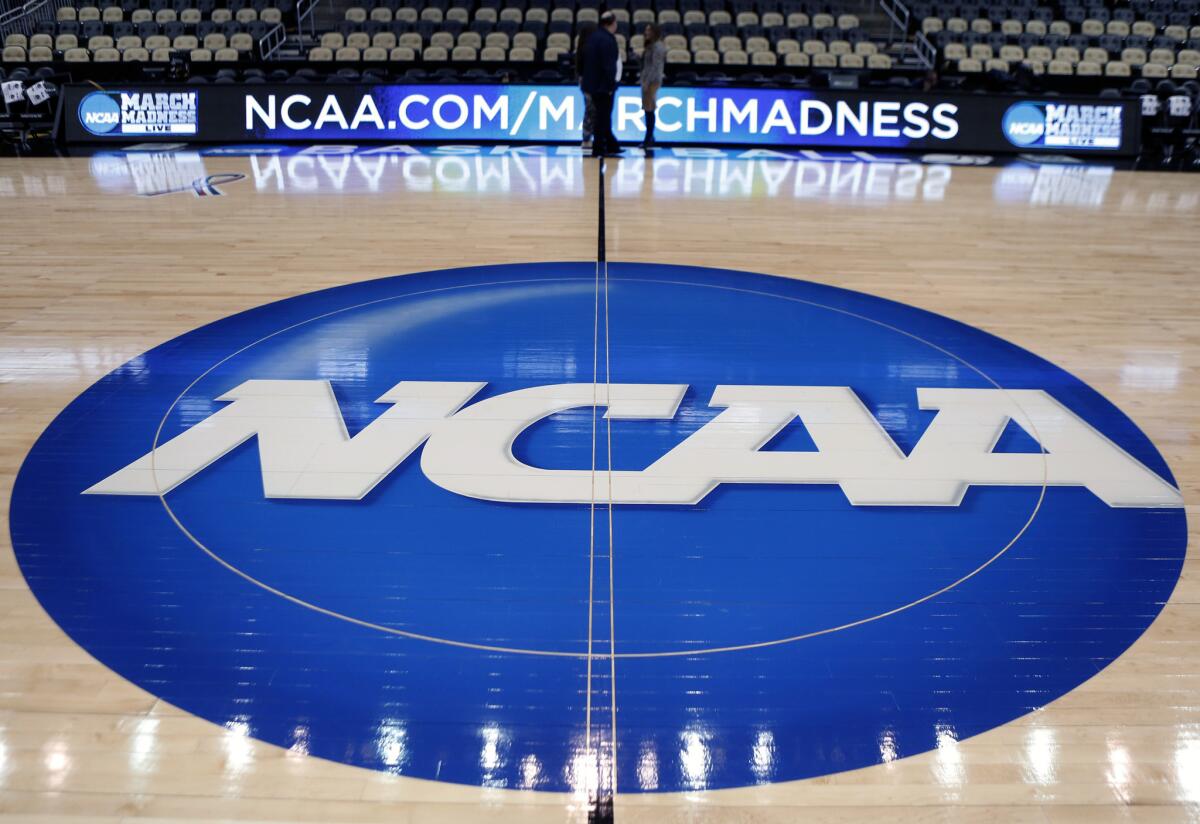NCAA: Californiaâs name, image and likeness legislation is âlikely to be invalidatedâ

NCAA attorneys described Californiaâs landmark legislation allowing athletes to profit from the use of their name, image and likeness as âunconstitutionalâ and âlikely to be invalidatedâ in a brief filed earlier this week in an unrelated case.
The 9th Circuit Court of Appeals, hearing appeals from both sides in former West Virginia football player Shawne Alstonâs class-action lawsuit against the NCAA and 11 major conferences over limits on athlete compensation, asked the parties if the legislation impacted the matter.
The NCAA said Californiaâs law has no effect on the case and continued its criticism of the legislation thatâs spawned similar efforts in almost 30 states.
âFurther, if California does not substantially modify the law, it is likely to be invalidated on constitutional grounds, given the Courtâs recognition âthat the NCAA must have uniform enforcement procedures in order to accomplish its fundamental goals,â â the filing said.
While Californiaâs law doesnât take effect until January 2023 â it hasnât been challenged in court yet â the NCAA has pushed for a federal solution to the NIL issue to avoid regulations that vary from state to state.
In October, the NCAAâs Board of Governors adopted the recommendation of an internal working group studying NIL to change the organizationâs bylaws in a âmanner consistent with the collegiate model.â The practical impact of that isnât clear. Member schools arenât expected to vote on changes until January 2021.
The filing emphasized the âexploratoryâ stage of the process and that âthe contours of any rule changes ⌠are uncertain.â
âAs an initial matter, the outcome of the working groupâs efforts remains uncertain,â the filing said. âThe group has not suggested any specific changes to NCAA, nor are any rule changes expected before next year. The group has simply proposed a high-level âregulatory frameworkâ to guide discussions.â
While the three NCAA divisions have been directed to develop âspecific legislative proposals,â the filing cautioned that âwhat those proposals will be, and what will ultimately be adopted, is thus speculative.â It noted, however, that the NCAA opposes allowing athletes âto receive NIL payments that could serve as pay-for-play.â
The long-running case involving Alston and several other former college athletes challenged NCAA limits on athlete compensation. U.S. District Judge U.S. District Judge Claudia Wilken ruled last year that the NCAA canât âlimit compensation or benefits related to educationâ for athletes, a blow to the organization, but well short of what the plaintiffs sought.
âIf the rulemaking process has any relevance to this case, it is only to underscore the enormous complexity of the task defendants face in seeking to ensure both that NCAA rules account for recent technological and other developments,â the filing said, âand that college sports retains its amateur character.â
More to Read
Go beyond the scoreboard
Get the latest on L.A.'s teams in the daily Sports Report newsletter.
You may occasionally receive promotional content from the Los Angeles Times.










